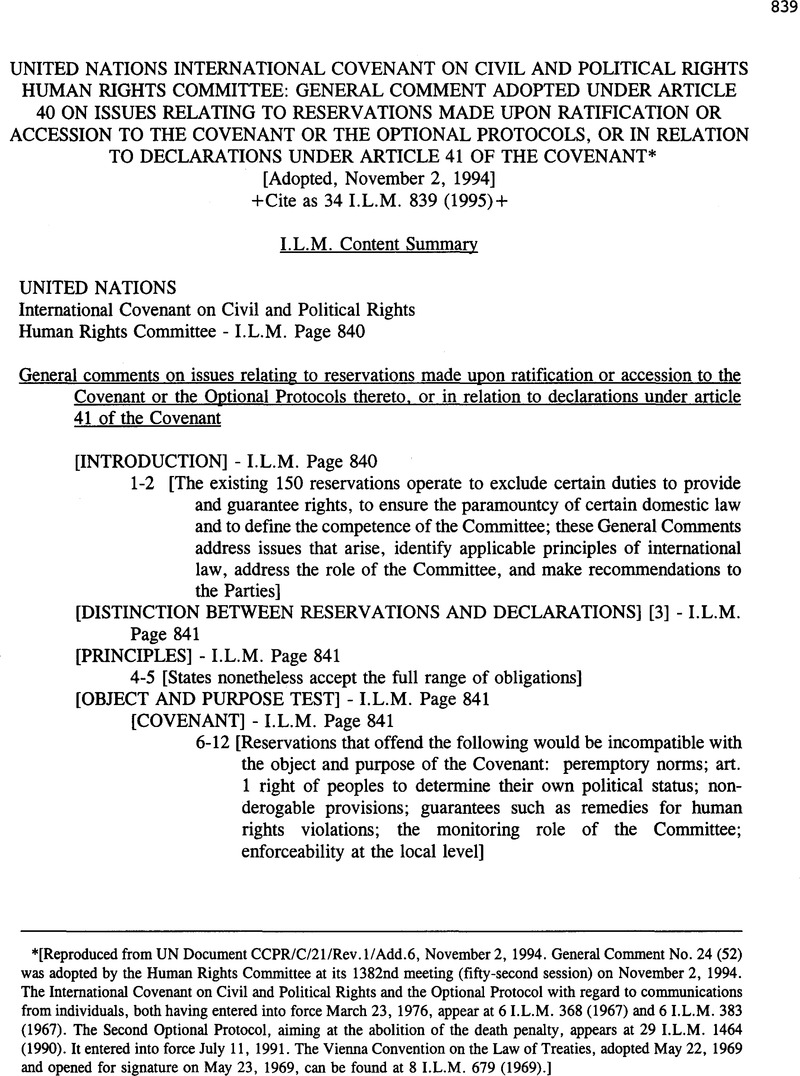No CrossRef data available.
Article contents
United Nations International Covenant on Civil and Political Rights Human Rights Committee: General Comment Adopted Under Article 40 on Issues Relating to Reservations Made Upon Ratification or Accession to the Covenant or the Optional Protocols, or in Relation to Declarations Under Article 41 of the Covenant
Published online by Cambridge University Press: 27 February 2017
Abstract

- Type
- Reports and Other Documents
- Information
- Copyright
- Copyright © American Society of International Law 1995
Footnotes
[Reproduced from UN Document CCPR/C/21/Rev. I/Add.6, November 2, 1994. General Comment No. 24 (52) was adopted by the Human Rights Committee at its 1382nd meeting (fifty-second session) on November 2, 1994. The International Covenant on Civil and Political Rights and the Optional Protocol with regard to communications from individuals, both having entered into force March 23, 1976, appear at 6 I.L.M. 368 (1967) and 6 I.L.M. 383 (1967). The Second Optional Protocol, aiming at the abolition of the death penalty, appears at 29 I.L.M. 1464 (1990). It entered into force July 11, 1991. The Vienna Convention on the Law of Treaties, adopted May 22, 1969 and opened for signature on May 23, 1969, can be found at 8 I.L.M. 679 (1969).]
References
1 Adopted by the Committee at its 1382nd meeting (fifty-second session) on 2 November 1994.
2 Article 2(1) (d), Vienna Convention on the Law of Treaties 1969.
3 Although the Vienna Convention on the Law of Treaties was concluded in 1969 and entered into force in 1980 - i.e. after the entry into force of the Covenant - its terms reflect the general international law on this matter as had already been affirmed by the International Court of Justice in The Reservations to the Genocide Convention Case of 1951.
4 Reservations have been entered to both article 6 and article 7, but not in terms which reserve a right to torture or arbitrary to deprive of life.
5 The competence of the Committee in respect of this extended obligation is provided for under article 5 - which itself is subject to a form of reservation in that the automatic granting of this competence may be reserved through the mechanism of a statement made to the contrary at the moment of ratification or accession.




